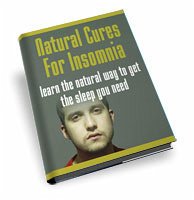Physically, you are completely worn out and wish for nothing more than a good night’s sleep. However, once in bed, you toss and turn, sometimes not getting a wink of sleep all night. Even when you finally think you are able to get some sleep, you awaken to find that you have been asleep for only about an hour.You can’t seem to concentrate on your work either. You are very irritable and moody. After a few nights of not being able to sleep, you seem completely withdrawn from others and are constantly depressed. Not to mention that with your lack of attention at work, your boss is probably after you as well.Sound familiar?If this has been happening on a regular basis, you could be suffering from insomnia.Rest assured that having insomnia is very common. This does not mean you are weird or crazy, it simply means that you have a problem, and that you need to identify what factors are causing you to lose sleep before establishing how you can overcome them to finally get that much needed snooze.How do you judge the severity of your insomnia? If you find yourself not being able to get that much needed few hours more than 3 times a week and this goes for more than a month, then you are suffering from chronic insomnia that you need to look into. Anything less is known as short term or acute insomnia, which can still badly affect you despite perhaps sounding less severe.Let’s get a better understanding of the definition and type of insomnia you actually have. Clinically, two types of insomnia have been identified. The world we live in and the stress that comes as part of it often brings on ‘secondary insomnia’. This is the most common type of insomnia and based on research done by the National Heart Lung and Blood Institute, it can affect as many as 8 out of 10 people.
Bitte wählen Sie Ihr Anliegen aus.
Rechnungen
Retourenschein anfordern
Bestellstatus
Storno









